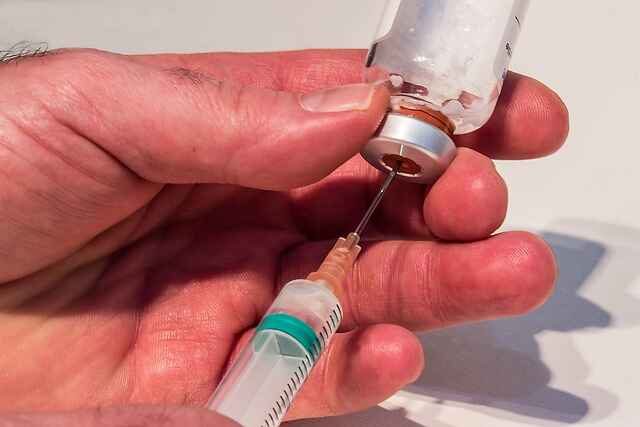What is Clostridium difficile?
Clostridium difficile is a bacteria that causes large intestine (colon) infections. Symptoms might range from diarrhoea to life-threatening colon injury. The bacterium is also known as C. difficile or C. diff.
Antibiotic use is the most common cause of C. difficile infection. It primarily affects elderly people in hospitals or long-term care settings. C. difficile infections can also occur in people who are not in healthcare facilities or hospitals. Some strains of the bacterium found in the general population are more likely to damage children or cause serious infections.C. difficile infections can also occur in people who are not in healthcare facilities or hospitals. Some strains of the bacterium found in the general population are more likely to damage children or cause serious infections.
Also, Read Complete Guide on Dementia: Causes, Symptoms, and Care Tips
Symptoms
Symptoms of C. diff can range from minor to severe.
- Watery diarrhea that occurs three to four times a day for several days
- Abdominal pain
- cramping or tenderness
- Diarrhoea more than 10 times a day
- Severe cramps
- Fever
- Nausea
- Loss of appetite/weight loss
- Dehydration
- Rapid heartbeat
Causes
CDI typically arises when the normal gut flora is disrupted, resulting in an overgrowth of C. difficile bacteria in the colon. This can occur after using broad-spectrum antibiotics, which can kill off good bacteria in the gut and cause C. difficile to flourish uncontrollably. The release of toxins generated by C. difficile is the primary cause of CDI.
Risk factors
You are more likely to get a C. diff infection if you:
- you are over 65 years old
- you are currently using or have recently used antibiotics
- you have been in a hospital or nursing home for a long time
- you have a weakened immune system – for example, a long-term illness such as diabetes or kidney failure, or treatment such as chemotherapy
- you are taking a proton pump inhibitor (PPI) such as omeprazole or other medicines that reduce stomach acid
- you have had a C. diff infection in the past

Diagnosis
If your doctor suspects that you have this infection, they will most likely prescribe one or more stool tests such as:
- Immunoassay for enzymes
- The polymerase chain reaction (PCR)
- GDH/EIA
- Assay for cell cytotoxicity
If your doctor feels that you have a major problem with your colon, they may request X-rays or a CT scan of your intestines. In rare situations, your doctor may perform procedures such as flexible sigmoidoscopy or colonoscopy to evaluate your colon.
Treatment
Clostridium difficile infection (CDI) treatment consists of numerous treatments aimed at eradicating the infection, treating symptoms, and preventing recurrence. Common CDI treatments include:
- Antibiotics: Antibiotics that are effective against Clostridium difficile are the primary treatment for CDI. Vancomycin, fidaxomicin, and metronidazole are the most often used antibiotics. The antibiotic used and the length of treatment will be determined by the severity of the infection and other individual circumstances.
- Supportive care: Due to diarrhoea, CDI can lead to electrolyte abnormalities and dehydration. Maintaining a sufficient fluid intake and, if necessary, receiving intravenous fluids is crucial for managing these problems.
- Fecal Microbiota Transplantation (FMT): FMT can be a possibility in cases of CDI that are severe or recurring and do not improve with antibiotic therapy. To restore a healthy balance of gut flora, FMT entails transplanting faeces from a healthy donor into the colon of the diseased person.
- Infection control measures: Proper hygiene, such as handwashing with soap and water (since alcohol-based sanitisers do not successfully kill C. difficile spores), can help prevent the infection from spreading to others.

Diet
Dietary concerns for people with CDI include:
- To replenish lost fluids and avoid dehydration, consume a lot of fluids, such as water, electrolyte drinks, and clear broths.
- Include soft, simple-to-digest foods like boiling potatoes, cooked rice, plain pasta, cooked veggies (without seasonings or sauces), and tender, lean meats.
- Nuts, seeds, whole grains, raw fruits and vegetables, and other foods high in insoluble fiber should be avoided.
- If dairy products aggravate your symptoms, reduce or avoid them temporarily. Lactose-free alternatives may be tolerated better.
- Certain foods, such as spicy foods, fatty foods, caffeine, alcohol, and artificial sweeteners, should be avoided.
Also, Read LATEX ALLERGY: Types, Causes, Risk Factors, Symptoms & Home Remedy
Care tips
- Hand hygiene should be maintained by properly washing hands with soap and water after using the restroom and before eating.
- Follow any isolation recommendations made by medical professionals if you’re at a healthcare facility or a shared living space to stop the infection from spreading to others.
- To lessen the danger of cross-contamination, periodically clean and disinfect surfaces, especially in communal areas.
- During active CDI, eat a healthy, readily digestible diet with a concentration on soft, bland foods. Reintroduce more foods gradually when your symptoms go better.
- Avoid using antibiotics if at all feasible because they may disturb the gut microbiota and possibly cause CDI.





